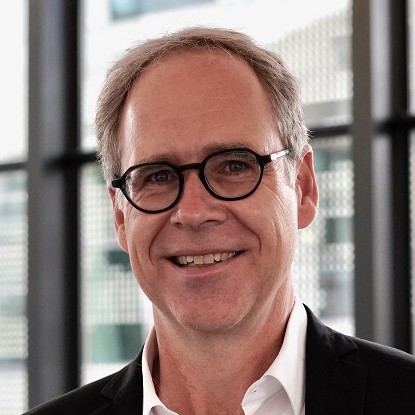Professor Dr Charles Chunbao Xu
Age: 53
My research areas: My research is mainly focused on advanced biorefining technologies for conversion of biomass and organic solid wastes into high value-added bioproducts (bioenergy, biofuels, bio-based chemicals and materials). Other research areas include production of green H2 from bioresources and development of chemical H2 storage technologies as well as utilization of biomass or bio-carbon in metallurgical industry.
Name of my University / Research Institute: City University of Hong Kong / School of Energy and Environment
Research period at the TU Darmstadt: June 1 till August 28 of both 2024 and 2025
Programme: Humboldt Research Award
My field of research is fascinating. The best way to explain it to non-specialists is…
Currently over 90% of chemicals and majority of energy are sourced from non-renewable fossil resources. Driven by the depletion of fossil resources, global concerns over climate changes as well as a worldwide trend towards carbon neutrality, there is intensified interest in production of chemicals and energy from renewable resources, i.e., biomass. The annual growth of biomass fixes about 220 billion tonnes of carbon and biomass could supply 15 times of the world’s total current energy consumption. We are working on conversion of biomass and biowastes into multiple high value-added products (energy, fuels, chemicals and materials) that are conventionally produced from fossil resources.
What research questions are you currently working on?
Hydrothermal liquefaction (HTL) and hydrothermal carbonization (HTC) process for valorization of high water-containing biowastes (such as food wastes, animal manures, algal biomass, etc.) into bio-crude oils or hydro-char, while recovering water; Production of bio-polymers from cellulose and lignin via chemical modifications; Production of oxygenated bio-chemicals and C5-C18 alkanes from C5/C6 sugars via catalytic conversion; Production of sustainable aviation fuels (SAFs) from lignin, biocrude/pyrolysis oils by catalytic hydrotreatment; Exploring chemical hydrogen storage technologies: ammonia, methanol and formic acid.
My most important success in research to date is…
I have endeavored to make contributions to applied science and engineering practice, with 12 patents granted in the United States/Canada/Europe/China by far and more than 50% of them licensed to industries. I have also established two start-up companies: Western Maple Bio Resources Inc. in Canada (in 2016) and Advanced Biorefinery Technologies Ltd. In Hong Kong (in 2024). In addition, I have published more than 330 papers in internationally renowned journals, cited more than 20,000 times, H-factor 76 (Google Scholar), authored/edited 3 books and more than 20 book chapters.
Will the results of your research have a concrete impact on our everyday lives now or at some later date?
Organic solid wastes, such as food wastes, waste plastics, animal manures, and sewage sludges are currently disposed of at landfills or by incineration, causing not only fast-depleted landfill spaces and secondary pollutions (leachate and greenhouse gases (GHGs), but also wastage of resources. My research to achieve conversion of organic solid wastes into high value-added products will not only provide a valuable avenue for managing the surging volumes of these wastes, but also reduce carbon emissions associated with the fossil-based carbon sector.
What innovative developments are you expecting in your field of research in the next few years?
I expect to scale-up the biomass hydrothermal liquefaction (HTL) technology and biocrude oil hydrotreatment technology to a commercial scale (with hundreds and thousands of tonnes per day) in the next few years. The upgraded biocrude oils will be utilized as drop-in biofuels as low-carbon marine fuels or sustainable aviation fuels.
I became a researcher because…
I am fascinated by exploring new and cost-effective solutions to real problems.
I have chosen TU Darmstadt because…
I have chosen TU Darmstadt as I have collaborated with Professor Marcus Rose at TU Darmstadt on co-training a PhD student in the past and Professor Rose’s group is among the world-renowned research teams on catalysis and catalytic conversion of biomass into green chemicals.
What reputation does German research enjoy in your home country?
German research, well-known for its rigor and innovation, has won excellent reputation in academia of both China and Canada.
What lasting impressions will you take back home with you from your time in Darmstadt and Germany?
I’m impressed deeply by the spacious labs and world-class research facilities at TU Darmstadt, the talented students in Professor Rose’s group, and the nice people around and rich culture in Darmstadt. Although for such a short stay thus far, I’d say that I have formed a sense of belongs to TU Darmstadt and hope to develop a long-term collaboration with Professor Rose and other colleagues here in the future.
Questionnaire for the host
Questionnaire for the host
Guest of: Professor Dr Marcus Rose
Department: Department of Chemistry
What did you appreciate most about your guest, or what is it that impressed you most favorably…
I appreciate most and it also impresses me how versatile his research background is in the field of bio-renewable resource conversion for energy and chemical utilization. Also, he has a broad international experience working for many years in Canada and now in China.
You, your team, and TU Darmstadt benefit from your guest’s stay…
… international background, similar research interests with a broad fundament for future collaborations, his genuine interest in our work and willingness to share his excellent scientific expertise.







